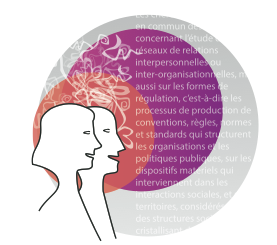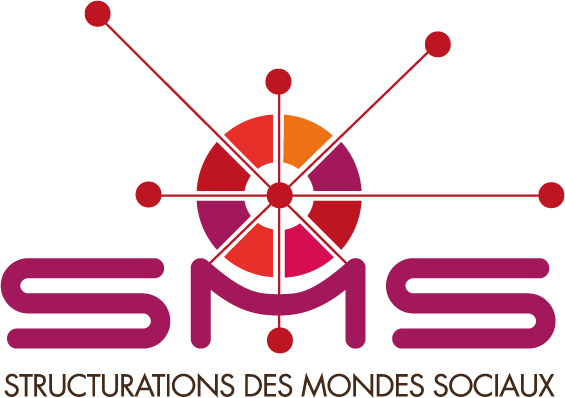-
Partager cette page
Research Groups

Research is conducted by full-time, tenured researchers and professors involved in the project, by research assistants (Master’s or Ph.D. students) recruited to assist them, as well as by Ph.D. students and postdocs funded by SMS. All graduate students and postdocs pursue their own, independently chosen research projects.
In 2015, the SMS includes eleven empirical research groups, which break down SMS’s broad research goal in order to study a variety of phenomena and social universes that social science research seeks to better document: internet and electronic communication, migration, aging, research activities, industrial worlds, rural worlds, historical contexts (Greco-Roman Empire, the Middle Ages, the Americas during Independence movements), and religious, commercial and political activities. Depending on the particular research group, studies are done either on large collections of data (on communication, aging, networks of scholars in Antiquity), or on a more limited scale that contribute to the broader themes. We will describe each of these research groups in greater detail below. All of the groups work on producing data that enable the advancement of knowledge about social worlds.
As for the three methodological workshops, they seek to strengthen collective expertise and to innovate on computerized textual analysis, the ethnography of electronic devices, and, of course, the analysis of social networks. Each workshop regularly organizes training for all the SMS researchers and seminars to share and compare experiences.
Exchanges with colleagues from other cities or countries take the form of short stays (1 week to 1 month) of SMS researchers in outside institutions and/or of colleagues from these institutions who come to Toulouse. We also fund translations of articles or books by SMS researchers into foreign languages. Finally, we fund research grants for scholars who, after a period of working in administration and/or teaching (i.e. being Department Head, running the Master’s program, etc.) need support to return to writing articles or books.
After talking with the heads of the master’s programs associated with the CNRS centres who are part of SMS, we created a network of master’s programmes that offers specific classes (4 research seminars) and pools together over eleven existing masters degrees in the disciplines involved in SMS. In addition to the standard classes in the master’s program that students are enrolled in, they can also take six classes chosen from among the seminars offered by SMS or the other master’s programs. In its first year of operation, 2014-2015, 27 students enrolled in the network.
SMS strives to change the connection between researchers and civil society. Three initiatives embody this commitment. The first is a think tank, the Laboratory of Ideas (LDI), which brings together researchers and people from different social worlds (artists, journalists, activists, politicians, entrepreneurs, etc.). This SMS Think Tank has organized collective discussion seminars on three major subjects: social diversity, employment, and religion in society. We have also organized a series of short talks on issues in the news that SMS’ research can help us to understand (such as: “Questioning the common wisdom on aging in society – a cost or a resource?”; “Social-spatial segregation – does the growth of a networked society help dissolve it?”; and “The Economic crisis”). These open, introductory talks present a synthesis of information (in 15 min) that can help reframe the way these questions are asked. The talk is then followed by a long period of discussion that enables participants to further refine their understanding of the subject.
Inspired by living labs, the ComUniTIC project (Communauté d’Universitaires autour des usages des Technologies de l’Information et de la Communication [Community of Academics on the Use of Information and Computing Technologies]) believes that the social sciences and humanities are essential for understanding and analyzing the uses of ICT. ComUniTIC brings together scholars in the Toulouse area who work on these issues and initiates partnerships with the private sector. Finally, it also constitutes a place of exchange and mediation with the general public (large conferences, training classes, meetings, public debates, festivals, etc.).
Finally, SMS has established a scholarly online magazine for the general public, Mondes Sociaux [Social Worlds] (http://sms.hypotheses.org/). This magazine has been online since June 2013 and has enjoyed success beyond our expectations. It publishes summaries of research by SMS scholars or others in a short and accessible format.
